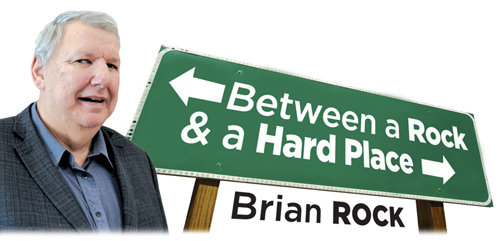The Musings of a Québec Historic Anglophone

I am a Québec Historic Anglophone. Anyone who went to English school in this province or is a member of an Indigenous group may be entitled to receive government services in English FOR NOW.
I was born and raised on the Island of Montréal. My father did all his elementary and secondary schooling in English in the City of Lachine. My mother immigrated from Eastern Europe to Montréal when she was twelve years old.
I began my teaching career in Pierrefonds. I later was a teacher and principal for three decades in Baie-Comeau on la Côte-Nord
(Anglophone population less than 5 %), finishing my career as principal in New Richmond on la Gaspésie (Anglophone population less than 10 %). Retiring to Hull-Aylmer, I served two years as the Executive Director of the Regional Association of West Quebecers (RAWQ).
Now a retired educational activist, reviewing the above: Living through Law 63: the Act to Promote the French Language passed under Premier Jean-Jacques Bertrand of l’Union nationale in 1969. Tearing up my Québec Liberal Party membership card in 1974 with the passage of Law 22: the Official Language Act under Premier Robert Bourassa. Deciding to stay in the province, with the passage of Law 101: the Charter of the French Language under Premier René Lévesque of le Parti québécois in 1976. AND NOW joining the fight against Bill 96: an Act respecting French, the official and common language of Québec in 2021 under Premier François Legault of le Coalition avenir Québec.
I have never left this province. Am I a glutton for punishment or what? What I have done is rolled up my sleeves and got myself involved as a volunteer. Elected to the Board of Directors of Alliance Quebec, I became Chairman of its Mainland Committee while in Baie-Comeau. I have served as President as well as Chairman of the Education, Rights, and Resolutions Committee of the Quebec Federation of Home and School Associations Inc. (QFHSA). And last year, I was elected to the Board of Directors of the Quebec Community Groups Network (QCGN). And even more recently elected as the Secretary of the Steering Committee of the Task Force on Linguistic Policy.
So we live in Western Québec. Even though the National Assembly of Québec and Québec City are hours away, the House of Commons and the Senate are within our own bailiwick.
What can the average citizen do? If you are a parent of children attending elementary or secondary school, join the local association of the Quebec Federation of Home and School Associations Inc. If the school does not yet have one, go to the General Assembly of Parents during September and get yourself involved with the Parent Participation Organization (P. P. O.) Better still, get yourself elected as a Parent Representative of the Governing Board.
If you are a parent of a CEGEP student, get involved with the CEGEP Board of Governors and/or Foundation.
And if your children are no longer attending an educational institution, Governing Boards are always looking for Community Representatives.
You might want to volunteer as a tutor or member of the Western Quebec Literacy Council (WQLC).
The Regional Association of West Quebecers is the regional member of the Quebec Community Groups Network. Join as a member.
The CONNEXIONS Resource Centre provides excellent workshops relating to health and social services. Sign up as a member.
The new group in town is the Western Quebec Chapter of the Task Force on Linguistic Policy opposing Bill 96 and asymmetrical federalism. Volunteer and sign up.
BUT PLEASE DO SOMETHING! GET INVOLVED SOMEWAY! IT IS IMPORTANT – FOR YOU, FOR YOUR CHILDREN, THEIR CHILDREN, AND FUTURE GENERATIONS . . . .
